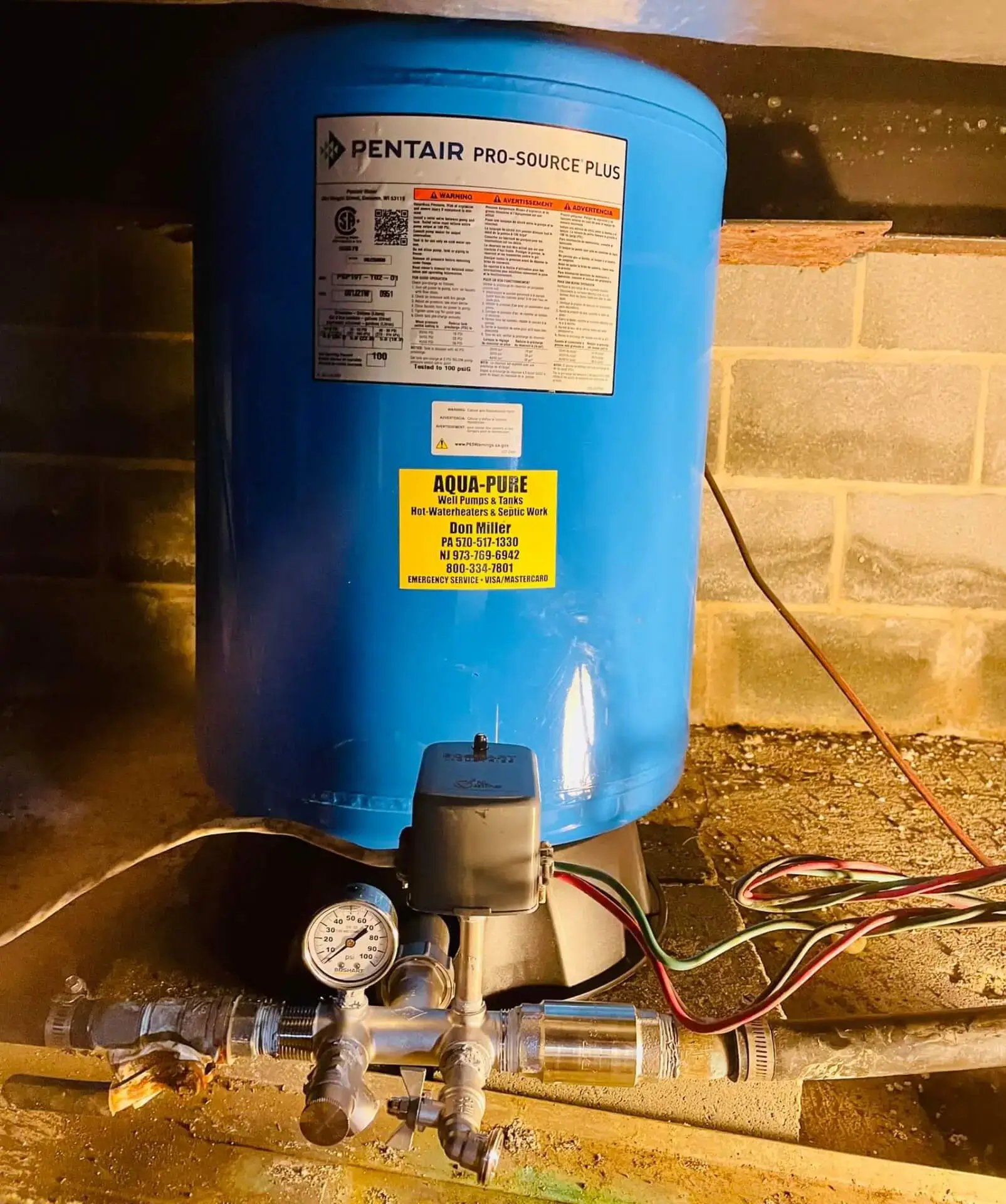Recognizing the Trick Elements of Effective Water Filtration Systems

Relevance of Water Purification Equipment
Water filtering systems play a vital function in making sure accessibility to clean and secure drinking water by successfully getting rid of pollutants and pollutants. These systems are crucial in dealing with the growing concerns over water quality and the potential wellness dangers linked with eating contaminated water. By using various filtration devices such as reverse osmosis, triggered carbon, and UV sanitation, water filtration systems can effectively remove damaging materials like microorganisms, viruses, heavy steels, and chemicals from the water.
Moreover, water purification systems aid to boost the taste and odor of water by eliminating chlorine, sediments, and other contaminants that can influence its top quality. Pump repairs & installation. This enhancement in water quality not only makes it extra palatable but likewise encourages people to drink an appropriate amount of water daily, advertising far better hydration and overall health
Sorts Of Filtration Parts

Physical filters are designed to physically stress out pollutants from the water. These filters can be made of products like ceramic, carbon, or perhaps sand, and they work by trapping bits bigger than the filter's pores as water passes through.
Chemical filters use different chemical processes to get rid of pollutants from the water. Instances include activated carbon filters, which adsorb pollutants, and turn around osmosis membranes, which make use of stress to separate contaminants from the water.
Biological filters utilize living organisms like germs or algae to damage down raw material and pollutants in the water. These filters are usually utilized in wastewater therapy plants or all-natural water purification systems.
Recognizing the different types of filtration elements is essential for choosing the most appropriate water filtration system for details purification needs.
Function of Debris Filters
Debris filters play a critical duty in water filtration systems by effectively capturing strong particles suspended in the water. These filters are usually the first line of defense in a filtration system, eliminating larger fragments such as sand, you can look here silt, dirt, and corrosion prior to the water relocates through finer purification stages. By capturing these debris, the filters avoid them from getting to downstream parts, hence expanding the life expectancy and efficiency of the entire system.
The feature of debris filters is crucial in preserving water high quality and securing delicate devices from damages triggered by particles. Additionally, by getting rid of noticeable bits, sediment filters improve the clarity and taste of the water. Frequently changing or cleaning sediment filters is necessary to make sure ideal efficiency. Neglecting this maintenance can result in obstructing, reduced water circulation, and endangered purification performance. Generally, debris filters are important components that this content contribute considerably to the effectiveness of water filtering systems.
Function of Activated Carbon Filters
Playing an essential role in water filtration systems, activated carbon filters are important in getting rid of contaminations and pollutants from the water system. These filters are created to adsorb and trap a vast variety of contaminants, including chlorine, unpredictable natural compounds (VOCs), pesticides, and herbicides. The activated carbon product has a big area, enabling for the reliable trapping of impurities with a procedure called adsorption. As water goes through the filter, the activated carbon draws in and holds onto the impurities, ensuring that the water that appears beyond is cleaner and much safer for usage.
Turned on carbon filters are extremely reliable at boosting the preference and smell of water by lowering chemicals that can influence its high quality. They are also with the ability of removing particular heavy metals like lead and mercury. Furthermore, these filters can assist stop the buildup of bacteria and algae in water, further boosting its overall high quality. Due to their versatility and reliability, turned on carbon filters are a crucial component in ensuring that water is purified to the highest possible requirements before reaching customers. why not check here
Understanding Reverse Osmosis Systems
Reverse osmosis systems are sophisticated water purification systems that use an innovative procedure to get rid of pollutants and contaminations from alcohol consumption water. These systems work by applying pressure to the water, compeling it through a semi-permeable membrane layer. This membrane functions as an obstacle, enabling just pure water particles to pass through, while obstructing larger molecules such as minerals, chemicals, and various other contaminations. As a result, the water that appears on the other side is substantially cleaner and much safer for consumption.
Additionally, reverse osmosis systems are relatively low-maintenance and can be mounted under the sink or in a central purification system, giving hassle-free access to clean water throughout the house. On the whole, understanding just how reverse osmosis systems work can assist individuals make informed decisions regarding their water filtration needs.
Conclusion
In verdict, effective water filtering systems are crucial for making sure tidy and safe drinking water. By recognizing the function and duty of each component, individuals can make informed choices when picking a water purification system.
Water purification systems play a critical role in making sure accessibility to risk-free and tidy alcohol consumption water by successfully removing pollutants and pollutants. By using numerous purification mechanisms such as reverse osmosis, turned on carbon, and UV sanitation, water purification systems can effectively get rid of unsafe substances like bacteria, viruses, heavy metals, and chemicals from the water supply.
Sediment filters play a critical role in water filtering systems by effectively capturing solid bits suspended in the water (Water Treatment).Playing an important function in water filtration systems, turned on carbon filters are crucial in removing contaminations and impurities from the water supply.Reverse osmosis systems are sophisticated water filtration systems that employ a sophisticated procedure to get rid of impurities and contaminations from alcohol consumption water
Comments on “Seamless Well Pump Replacement: Recovering Your Water with Precision”